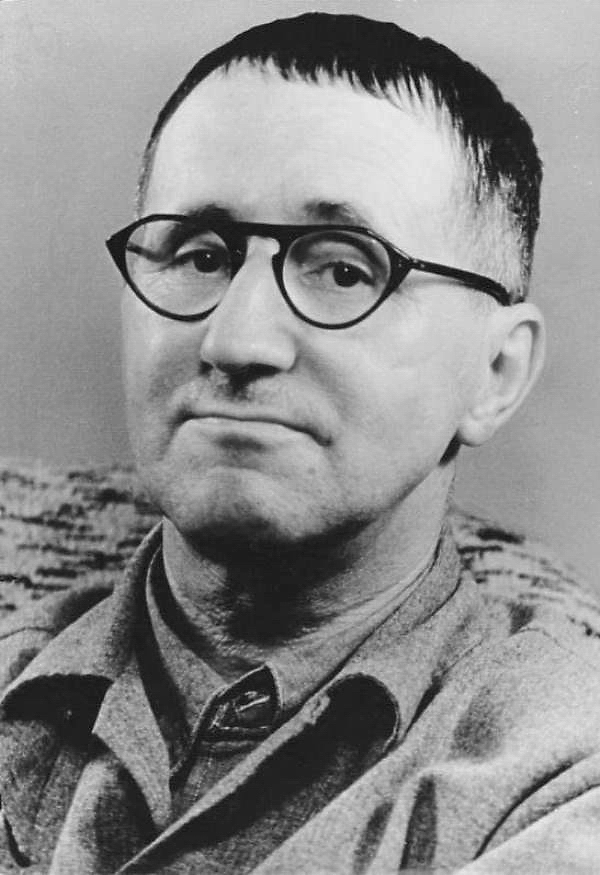
Bertolt Brecht was one of the most influential playwrights and theatre practitioner of his time and possible of all time. he re-defined and re-shaped theatre entirely. He was born on 10th February 1898 and died at the age of 58 on 14th August 1956, yet even in that short amount of time, he created some of the most inspiring and influential acting techniques within this centenary. He redefined theatre and it's use, creating a style of theatre that was designed to shock and test the audience so they would see the piece for its political values and not for its entertainment morals.
He is most famous for his thoughts on theatre and how acting should be. Brecht got tired of the audience feeling empathy for the characters, so created a brand new type of theatre known as Epic Theatre. He is also known for his two most famous and practiced techniques, The Verfremdungseffekt (also known as the Alienation effect or strange making) and Gestures. The V effect is Brecht's most notable techniques that defined his career and the entire style of theatre. Brecht was a very political man and always wanted to create a type of theatre that could be seen and used as a political devise so the audience would start to question their society. The V effect is the method Brecht created in order to achieve this type of new theatre he had created. Fundamentally, the Alienation effect is anything within the piece which either shows or reminds the audience that they are watching a constructed piece of theatre and that the characters and plot lines are symbolic and aren't real life. The actors do this by constantly breaking the fourth wall so they will talk and engage with the audience. On some occasions, the actors will come out of their characters and explain the construction of the piece to the audience. This done by directly talking to the audience, changing costume on stage and even removing or adding set midway through a scene. These are all done in order to show the audience that what they are watching as been constructed and made for a specific political purpose.
Brecht's idea of Gestures are slightly more complex. On the surface it is simply an English translation to: a gesture. This could be anything from moving a foot of an impatient by-stander, to the shiver of shoulders of the lost and cold young boy. Basically it is simply the physicality of the character. However, if you look deeper, its real use if to show the physical attitudes of members in society, almost like a parody or a microcosm. These are used to highlight the attitudes of society as a whole, so the audience can understand its meaning. Brecht often made his pieces of theatre accessible to the working class, so often the themes would be relatable to them.
Brecht's idea of Epic Theatre was something that became more prominent within his early and later works. He wanted his theatre to be non-linear and episodic to make the Alienation effect more of a feature. His work became Shakespearean in essence; switching from one characters perspective to the next, often with no clear linear narrative or links between the scenes. he also gave music its own voice, often giving a scene nothing except music, which again is applying the v effect. Brecht liked to use music as an effect for some scenes. He would often play a piece of music against the content of the scene which again amplifies the Alienation Effect.
http://www.slideshare.net/SalvatoreGiovanniSorce/bertolt-brecht-epic-theatre-14203501
Here is a link to a website which posts slide shows on Brecht's work and compares it to other practitioners.
No comments:
Post a Comment